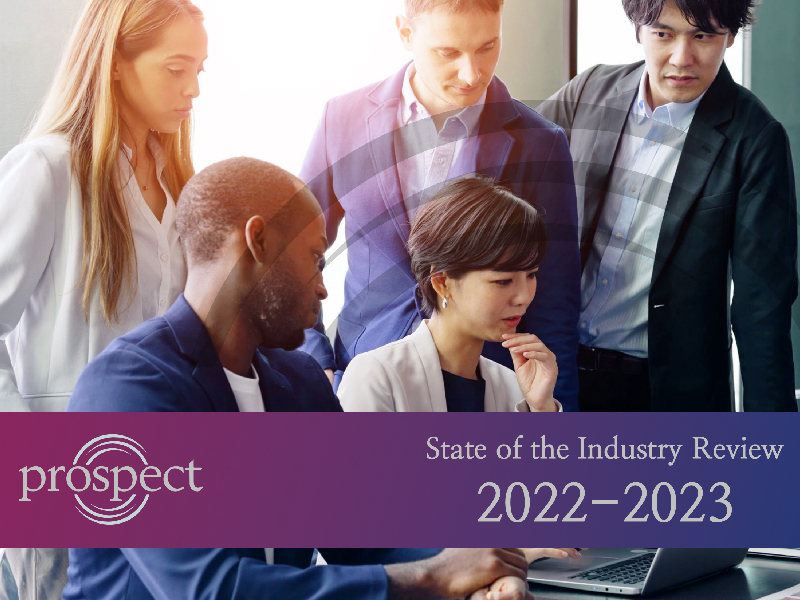Atalia Nyx Chua 05 Apr 2023 // 7:17AM GMT

SINGAPORE — For the first time, pay has fallen outside the top three determining factors of employee happiness for Asia's PR industry, according to Prospect's 12th State of the Industry Review, which polled more than 570 communications practitioners in Singapore, Hong Kong, Mainland China, and the UK.
In 2022, training, promotion opportunities, and flexibility were the top three drivers for happiness. While half of all practitioners in Asia are happy in their current employment, that happiness does not translate into loyalty. More than 60% of respondents would consider changing employment in 2023, and employers can expect a continued trend of talent mobility within the industry in the year ahead.
In response to this shift, Emma Dale, co-founder and MD of Prospect said: “The importance of training in retaining and developing industry talent cannot be overstated, especially in this era of hybrid working”.
“The need to coach leaders and aspiring leaders has really grown as firms have witnessed the business impact of an absence of employee loyalty due to less engaged or inspiring leadership.”
Happiness can have a multiplier effect
In 2021, employees attributed their happiness to a sense of purpose, pay, and workplace culture. But just one year later, the factors have switched to flexibility, training, and promotion opportunities according to the findings.
Hybrid working remains a workplace feature despite pandemic restrictions easing in most markets. Yet, the ambiguity of remote versus in-person working which characterised recent years has been replaced by a more structured approach that balances the needs of the business with the priorities of individuals.
“As a company we introduced a flexible working policy, which was very simple: you do what works for you, have a conversation with your manager, and measure people on output rather than input. For most of my team, that really inspired them,” said Anna Tehan, EVP of corporate communications at Fung Group in Asia.
Besides flexibility, the report finds that training and promotion opportunities play an important role. This translates to employees’ aspiration for progression and better performance in job roles. In fact, a sense of purpose in work came in a close fifth behind pay, which ranked fourth — signalling that meaningful work is important.
When UK respondents were asked to evaluate their current employer in the following areas, fair, market-rate pay and benefits tied for first place along with flexible working. The bottom two were training and promotion opportunities respectively.
Hybrid working spurs training demands
In 2022, respondents recognised the value and extensive benefits of training, including “keeping up with market changes”, “staying relevant in the industry”, “essential to servicing clients”, and “accelerates career progression”. Yet almost one-quarter of respondents did not undertake any professional development initiatives last year.
This voracious appetite for upskilling is because “candidates who are not set in their ways and who show a willingness to listen, learn and have a growth mindset will be in demand,” explained Charmaine Toh, head of communications at Indosuez Wealth Management.
This issue may have been impacted by the pandemic where work-from-home and hybrid working became the norm. On-the-job training hindered opportunities to observe and learn from experienced professionals, which is especially valuable for industry newcomers.
Despite this, employers have not yet compensated for a reduction in on-the-job training by providing more formal training programmes, and this is keenly felt by their staff. Survey respondents evaluated their employers poorly in providing training opportunities.
Insufficient progression opportunities fuel dissatisfaction
Respondents in the UK and Asia have ranked employers poorly in providing pathways for career advancement. While employers were seen as doing a good job in providing workplace flexibility (2.6 out of 3), they were evaluated comparatively poorly in providing training (2.0 out of 3) and promotion opportunities (1.9 out of 3).
Hybrid working has not necessarily directly impacted successful career pathing, but it undoubtedly has raised concerns from some employees that their contribution may be less visible and consequently, less valued.
In Asia, 75% of respondents want to be promoted within the next year, while the UK records a 65% rate. But the lack of traction is attributed to the gap between ambition, ability, and attitude. “Leaders have to have strategic thinking, a macro outlook, and an understanding of what the problem really is as well as being able to provide a solution,” asserted Kiri Sinclair, founder and CEO of Sinclair.
As for disposition, “a leader is someone who is able to empower and orchestrate. That person will not know everything but is able to try, innovate and experiment,” said Voal Voal Wong, managing partner at IN.FOM.


































.jpg)






.tmb-135x100.png)










